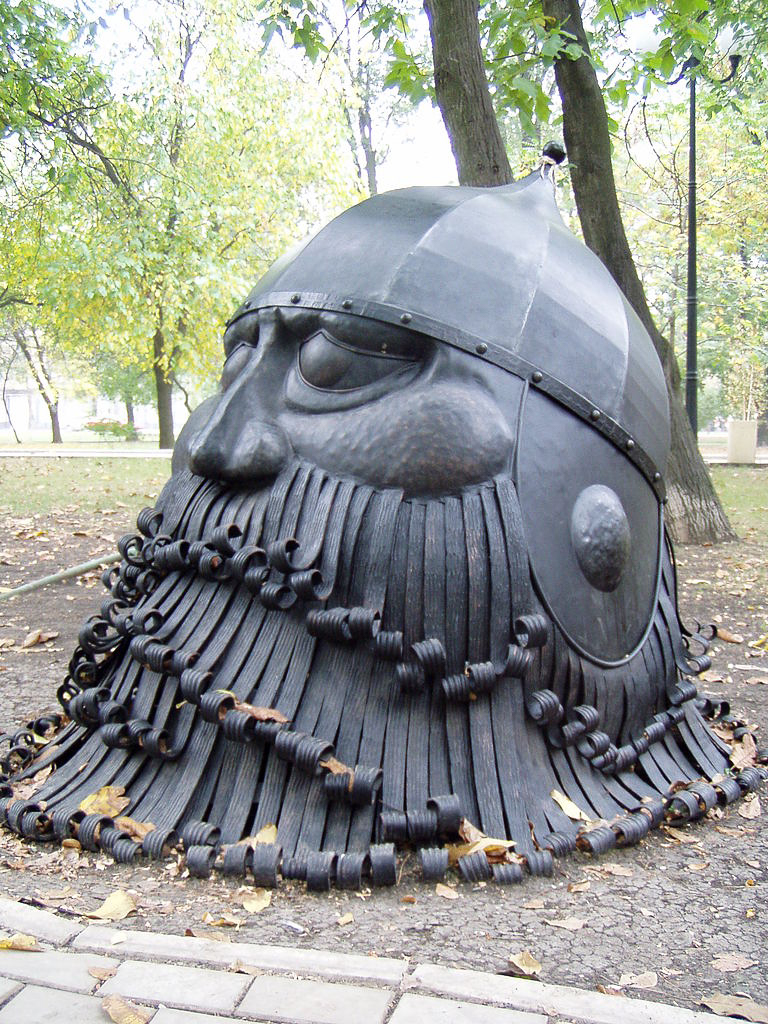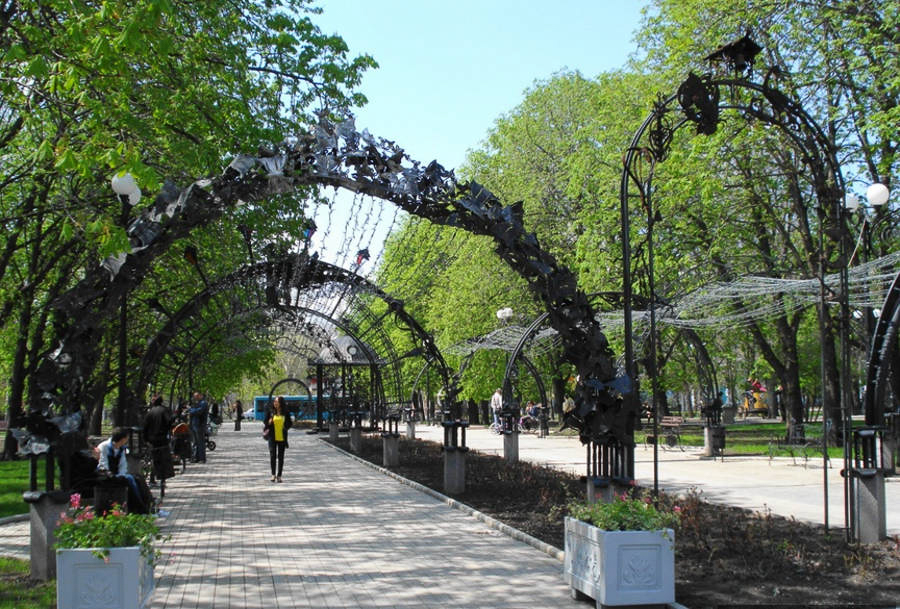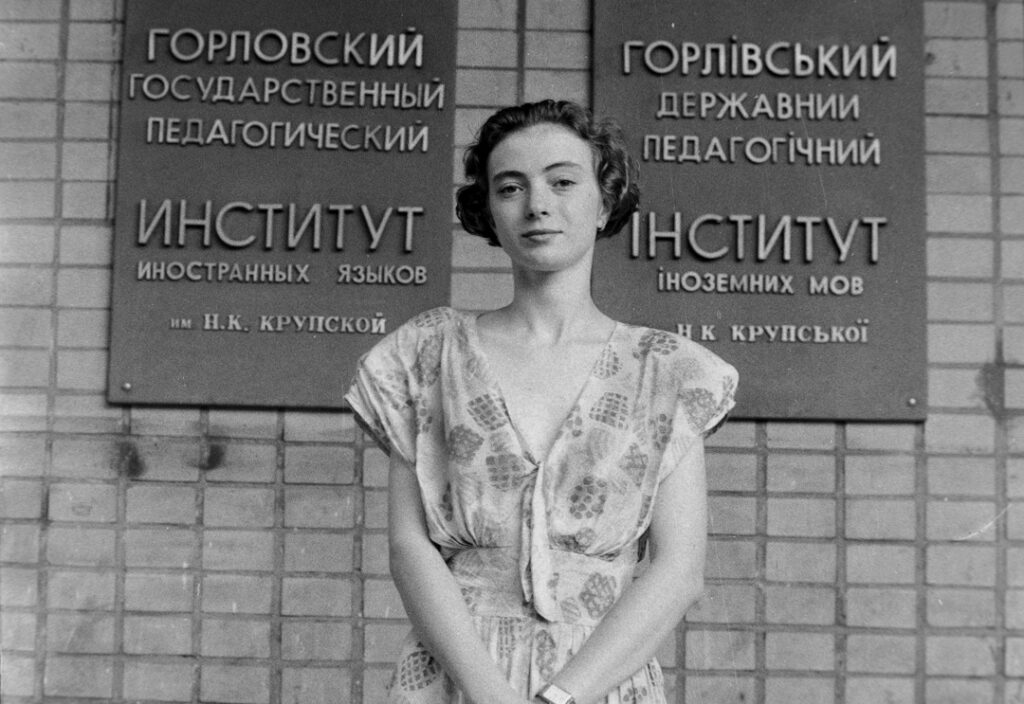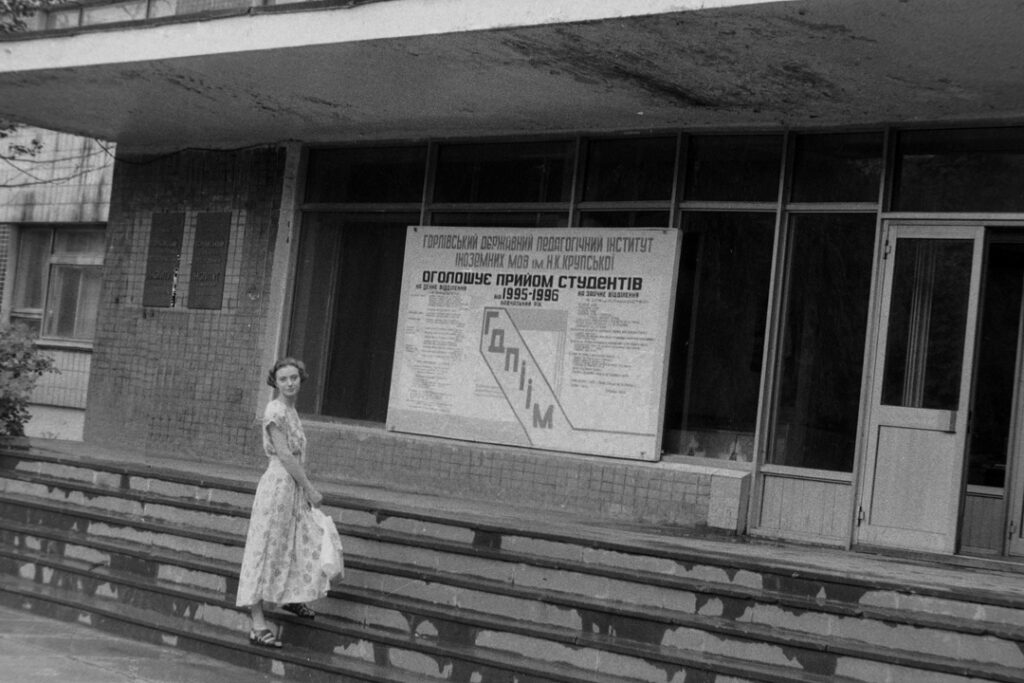
We share a poem from Carbon: Song of Crafts by Svetlana Lavochkina that reflects the place of blacksmithing at the heart of Donetsk, Ukraine.
Rank Four in the World Blacksmith Contest
Lisa – you won’t believe it but when I was fourteen,
I loved to go out into my father’s garden at sunup.
With my eyes closed, I plunged my fingers
Into the thorny thicket of roses.
I swear I could tell the species by fragrance and touch.
I used to sport flaxen bangs that flapped in steppe winds,
But now it’s no disgrace for a man in his forties
To sacrifice some of his mane on the virility altar.
I used to be expert in Greek mythology,
My father had taught me the Zodiac decades before astrology became fashion.
Andromeda to Vulpecula, Acamal to Zuben and backwards.
I thought myself guided by golden-toed gods.
Delicate dimples used to dapple my temples.
Now with these dimples dried to sardonic shards,
I look all the more striking, an Odysseus
Who crushed many lemons of life.
My hands, even stronger than in my youth,
Canny runners along the strings of girl-harps.
I’m ripping my biographical chasms open for you,
Just as you’ve flashed your cleavage for me unawares:
A button tore off the placket front of your blouse.
Alex Yangin, an accomplished man with a calling:
The forger of steadfast beauty,
Rank Four in the World Blacksmith Contest.
Bellows blew tales of my skill all over the cardinal points.
It’s me whom your husband has hired to pimp up his hotel,
Too stingy to pay the Grand Prix from Texas,
Or the runner-up Viking from Oslo.
This is what we Ukrainians are for:
A peerless price-quality bargain.
Herr Wasser and I struck a 15 grand deal,
And your lizard tongue helped us along.
I know it’s peanuts for him, but for me, it’s a fortune
To allow my wife and my future son to lack nothing.
Herr Roland Wasser’s commission includes
Studding the ebony counter with stainless steel roses;
Jingling chrome vines to pepper the lounge;
A dragonfly chandelier for the conference hall;
Last item: the decadent whim of bronze bottle flies
For taps in the premium suite bathrooms.
I promise I’ll craft them so well
That the guests will think them alive.
I swear the flowers will drip with dew,
And the insects will buzz.
Interview

✿ What inspired this Rank Four in the World Blacksmith Contest?
Donetsk has always been about coal and metal to be lured out of the black soil steppe to ensure survival for the increasing population. Yet, these life-giving elements of the periodic table, once hauled onto the surface, transcended their practicality to sprout into art. Mighty creative spirit has always lived in colliers and metallurgists to help them endure the hard, dangerous workaday. These people had an acute sense of love and beauty, a counterweight to their inhuman efforts underground and at the furnace. This is also where metal art is rooted. Metal, the most durable material to impersonate and thus “protect” the fragile, the perishable, the filigrane and the sublime: flowers, insects, fairy-tale figures – to reinforce them in the material world, to make beauty immune to adversities. I studied in Horlivka, Donetsk Region, and many of my college mates hailed from collier and metallurgist families. Vicariously, I became immersed in their rich family lore, “housing” many professions, among them, blacksmiths turned metal artists.
✿ What crafts are noteworthy in Donetsk?
Before 2014, ceramic and porcelain pottery, woodcarving, embroidery flourished in Donetsk. Yet, the uncontested “royalty” among the crafts had always been metal art.
✿ Does a particular piece of ironwork in Donetsk come to mind?

The European Bouquet, Park of Forged Figures; Source: https://pkf.donbass-name.ru/smi/1261-pamjatnik-kuznecu-desjat-let-spustja.html
“The European Bouquet” for the famous Park of Forged Figures: a hedge of 56 metal flowers crafted by blacksmiths from 56 countries for the 14th International Blacksmith Festival in 2012, which was held in Donetsk. The European Bouquet is still firm and defiant in its place in the park, not giving a damn for the Russian invasion and impersonating the metal-strong and beautiful historical quintessence of the city: Europe. Ukraine as a European democracy. The Bouquet will definitely outlive the barbarian “novorussian” regime. Here are some separate flowers which were subsequently joined together.
✿ What’s your ideal image of Donetsk when it is not at war?
A European metropolis that hosted the European Football Cup in 2012. It is aptly described in the second passage, “The Wide Bevels”, I can’t say it better in prose:
[…] Imagine a tube as big as a city,
Spinning around its omnivorous waist,
With eighteen mirror-skyscrapers inside.
Wide bevels of the Donbass gem, emerald-cut,
Firmly framed in the marriage of rose beds and sulfur,
Drenched in factory buzzers, the screech of mine shafts,
Church bells, football cheers and the Scythian Suite by Prokofiev.
[…]
If you only saw Cat Eye Pit toddlers on see-saws,
So well-fed the seats crash into the ground.
Elegant people stroll on Shevchenko Boulevard,
Culling their dogs’ shit into special bags with their gloved hands;
Young coxcombs in business attire skim along Artem Avenue,
In blue-tooth diatribes with Hermes.
Nouveaux-gourmand colliers wield sushi sticks,
Or suck at frog legs like nobody’s business.
A beautiful European metropolis that hosted the European Football Cup in 2012. Merry, friendly, witty, multinational, multilingual, multireligious, akin to the legendary Alhambra, yet unanimously and proudly under the yellow-blue of the Ukrainian flag.
Graduation in Horlivka
- Svetlana Lavochkina; photo: Mykhaylo Lavochkin (father)
- Svetlana Lavochkina; photo: Mykhaylo Lavochkin (father)
My father Mykhaylo Lavochkin took these photos on my college graduation day in June 1995, Horlivka, a satellite of Donetsk (also annexed by Russia in 2014). The photo features the building of my teacher training college, which was partially destroyed in 2014. The staff didn’t want to teach under occupation, so the college moved to Bakhmut, which has been one of the most vicious battlefields in Russia’s war against Ukraine for months and remains under Ukrainian control. The sign on the building says, Horlivka State Pedagogical Institute of Foreign Languages, Russian at the left, Ukrainian at the right.
About Svetlana Lavoshkina
Svetlana Lavochkina is a novelist, poet, and literary translator. She was born in Zaporizzhia and educated in Horlivka, the Donetsk District. Lavochkina immigrated to Germany in 1999 and now lives in Leipzig with her family. Her works have been published in the US, Europe, and Australia, and translated into seven languages. She was runner-up in the Paris Literary Prize and finalist in Tibor and Jones Pageturner Prize, London. Like lavochkina.gitin.de
Carbon: Song of Crafts (Lost Horse Press, 2020) is a prayer in polyphonic verse for a beloved, anguished city. Svetlana Lavochkina sends readers on a double odyssey with two adventurers, the fiery blacksmith Alexander and the elusive linguist Lisa, whose paths are destined to cross on the cusp of the war in the Donbas. Only one of them fathoms that their encounter goes far beyond its face-value purpose. It is a thriller, a romance, a CV, a rose of historical winds, a song of crafts and an ontology of Eastern-Ukrainian



